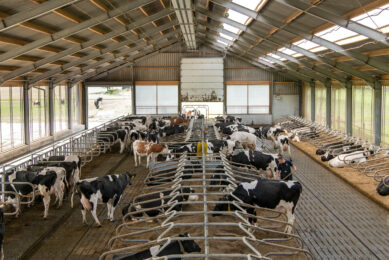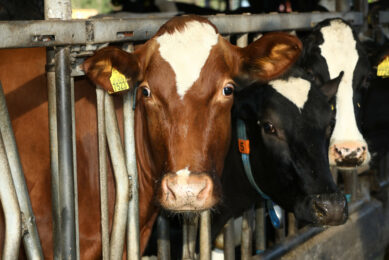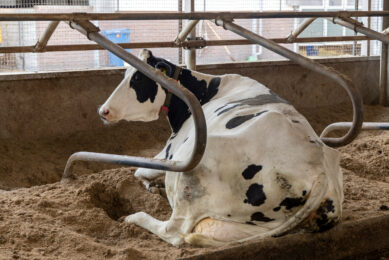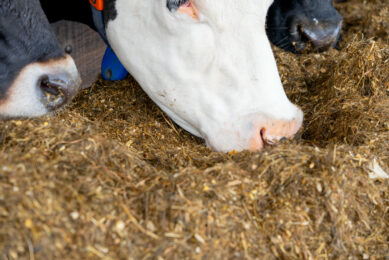Genetically modified cows transforming the Russian sector
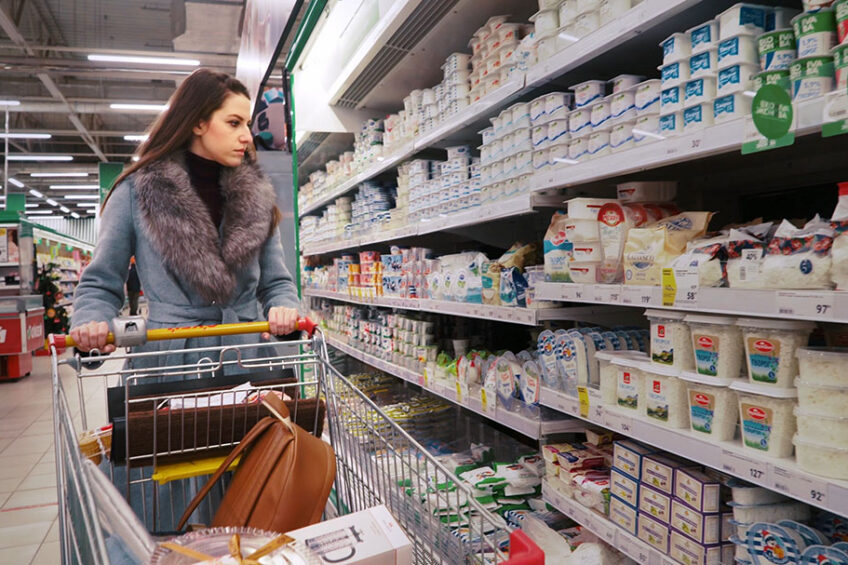
The Russian Academy of Sciences uses CRISPR/Cas9 to create a new breed of milk cows with better productivity and anti-leucosis protection. Still, there are widespread concerns about the gene-editing technology and the new breed.
So far, Russian scientists are editing 3 points in the cow genome, all considered crucial for modern dairy farmers, Anna Krivonogova, chief author of the project from the Russian Academy of Science’s Ural branch told a Russian government publication.
The first is the CD209 gene, a potential receptor for leucosis. By disrupting its sequence, the scientists expect to prevent the virus from entering cells and thus protect cows from this infection from birth onwards. Up to 30% of cows in Russia are affected by leucosis during their lifetime, so this change alone may bring tremendous savings to Russian livestock companies, the scientists estimated.
Beta-lactoglobulin
The second gene to be edited regulates the production of beta-lactoglobulin, which is the primary allergen in cow’s milk. By turning this gene off, the scientists will make sure all milk is safe for people susceptible to dairy product allergies.
Allele of hornlessness
Finally, the researchers claimed they wanted to edit the allele of hornlessness – a sequence that prevents horn formation. This change would also have great importance in preventing injuries among the dairy herd, the scientists said.
All in all, these changes could make the Russian dairy industry much more effective, saving farmers billions in unnecessary costs.
“Currently, selection is the main way of improving milk cows’ performance. It takes decades to achieve the desired results. With the gene-editing technologies, we could accomplish the task in the shortest possible time – in one to two years,” says Krivonogova.
Krivonogova explains that in a recent experiment three cows were implanted with experimental embryos. The first results are expected to be seen at the end of 2021 when the first calf is born.

Technology arsenal of tools
The Russian scientists explained they need to master gene-editing technologies to contribute to Russian food security strengthening. Krivonogova says that so far, the research is being carried out for scientific purposes only. “Nobody is going to fill farms with genetically modified calves now, but the country should develop its own methods of animal genome editing and develop genetic engineering technologies,” she says.
“Imagine if the use of genetically modified farmed animals and plants is allowed everywhere, and the borders are open. It is highly likely that our domestic producer simply will not cope with the wave of imported, cheap and untested GMO goods that would flow into Russia,” Krivonogova states, adding that Russia needs to have these technologies ready for commercial use in order to resist foreign invasion on the food market. “Our technology is a tool. The scientists must have a full arsenal of tools at hand,” she says.
Mounting GMO fears
If successful, the experiment, in theory, could pave the way to swift commercialisation of the new technology. However, the scientists would need to overcome the law prohibiting breeding of genetically modified animals in Russia first, and even this offers no guarantee that the new technology would be in demand among milk farmers.

The most recent opinion poll held by the Russian Public Opinion Research Center showed that as many as 66% of Russians are confident that all genetically modified products pose dangers to consumer health. The majority of Russian customers appear to believe that the big international food giants, promoting GMO products, are hiding information about their negative impact on consumers.
In contrast, only 20% of responders claimed that, in their opinion, all GMO products were harmless.
New anti-GMO campaign
The new research has been released against the backdrop of what looks like a new anti-GMO campaign launched by the Russian authorities. During the past few years, the Russian veterinary watchdog Rosselhoznadzor has been strengthening control over the presence of GMOs in imported products, regularly banning imports from the countries found not fully complying with the Russian veterinary regulations.
On May 18, the Russian veterinary watchdog Rosselhoznadzor prohibited the import of feed additives from Germany after a routine inspection revealed GMO residues in a batch of supplied products. Russia banned the import of feed additives from Spain and the US earlier this year and from the Netherlands in late 2020, in each case also citing GMO fears.
As a consequence, the Russian National Feed Union claims that Russia might be on the verge of an acute shortage of some feed additives. Rosselhoznadzor restricted import supplies despite strong protests voiced by feed additive importers and pet food companies, who warned about a shortage of some crucial products on the domestic market.
No chimeras anticipated
In this context, Russian scientists have to dismiss concerns related to their new technology. “By developing genetic engineering technologies, we do not intend to outsmart nature. We use its natural mechanisms to achieve the goal,” Krivonogova says, explaining that mutations are the normal thing for evolution, and the only focus of the new study is to get them under control.
“In the natural process of maturation of germ cells, there are usually many more changes in the DNA. Children are not born as clones. Changes in the genome are provided by nature itself. Parental chromosomes exchange different structural regions for creating a new combination,” Krivonogova adds.
“The main thing is that all embryo cells have the same genotype, then there will definitely be no chimeras. For this, well-proven, clear technologies are needed that guarantee the result. We did not stop at the first embryo; the research continues,” she says.
Join 13,000+ subscribers
Subscribe to our newsletter to stay updated about all the need-to-know content in the dairy sector, two times a week.



